Peugeot 308 vs VW Taigo - Differences and prices compared
Compare performance (195 HP vs 150 HP), boot space and price (29200 £ vs 19600 £) at a glance. Find out which car is the better choice for you – Peugeot 308 or VW Taigo?
Costs and Efficiency:
When it comes to price and running costs, the biggest differences usually appear. This is often where you see which car fits your budget better in the long run.
VW Taigo has a significantly advantage in terms of price – it starts at 19600 £, while the Peugeot 308 costs 29200 £. That’s a price difference of around 9613 £.
Fuel consumption also shows a difference: Peugeot 308 manages with 2.30 L and is therefore convincingly more efficient than the VW Taigo with 5.30 L. The difference is about 3 L per 100 km.
Engine and Performance:
Power, torque and acceleration are the classic benchmarks for car enthusiasts – and here, some clear differences start to show.
When it comes to engine power, the Peugeot 308 has a evident edge – offering 195 HP compared to 150 HP. That’s roughly 45 HP more horsepower.
In acceleration from 0 to 100 km/h, the Peugeot 308 is barely noticeable quicker – completing the sprint in 7.60 s, while the VW Taigo takes 8.20 s. That’s about 0.60 s faster.
In terms of top speed, the Peugeot 308 performs slight better – reaching 225 km/h, while the VW Taigo tops out at 212 km/h. The difference is around 13 km/h.
There’s also a difference in torque: Peugeot 308 pulls somewhat stronger with 300 Nm compared to 250 Nm. That’s about 50 Nm difference.
Space and Everyday Use:
Cabin size, boot volume and payload all play a role in everyday practicality. Here, comfort and flexibility make the difference.
Both vehicles offer seating for 5 people.
In curb weight, VW Taigo is to a small extent lighter – 1229 kg compared to 1453 kg. The difference is around 224 kg.
In terms of boot space, the VW Taigo offers hardly perceptible more room – 440 L compared to 412 L. That’s a difference of about 28 L.
In maximum load capacity, the Peugeot 308 performs hardly perceptible better – up to 1323 L, which is about 101 L more than the VW Taigo.
When it comes to payload, Peugeot 308 slight takes the win – 503 kg compared to 457 kg. That’s a difference of about 46 kg.
Who wins the race?
The Peugeot 308 proves to be dominates this comparison and therefore becomes our DriveDuel Champion!
Peugeot 308 is the better all-rounder in this comparison.
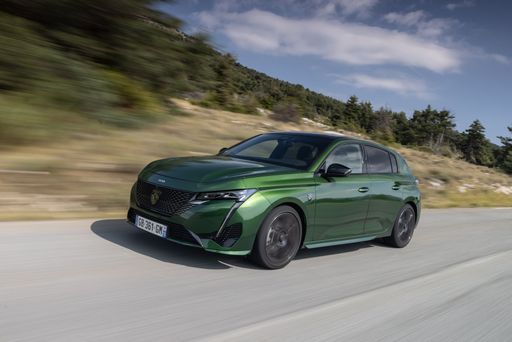
Peugeot 308
Costs and Consumption
View detailed analysis
Engine and Performance
View detailed analysis
Dimensions and Body
View detailed analysis
Peugeot 308
The Peugeot 308 brings a sleek, feline profile and an unexpectedly upscale cabin, with clever packaging and materials that feel a touch more premium than you might expect. It’s composed on the road, easy to live with for daily life, and a smart choice if you want a stylish hatch that still behaves when the road gets interesting.
details
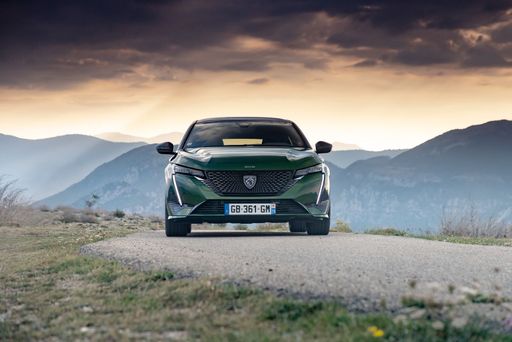
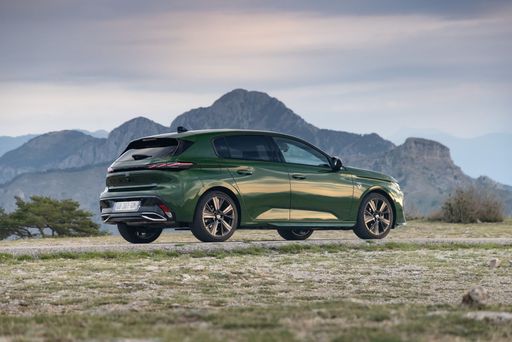
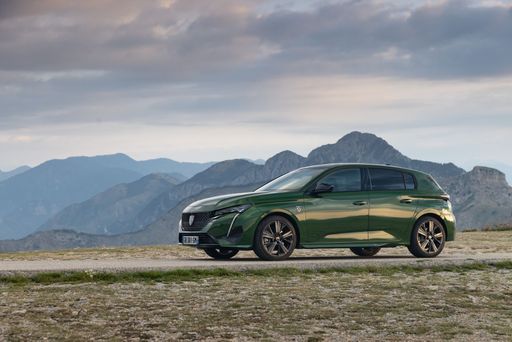
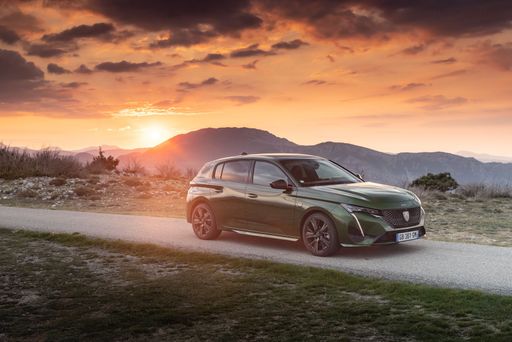
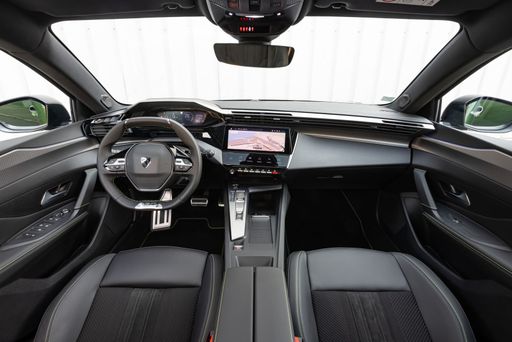
VW Taigo
The VW Taigo brings coupe-like flair to the compact crossover scene with sharp styling and an interior that punches above its price, feeling smarter than you’d expect. It’s an easygoing daily companion that balances comfort and practicality with a playful wink, perfect for city drivers who want something livelier than a regular hatchback.
details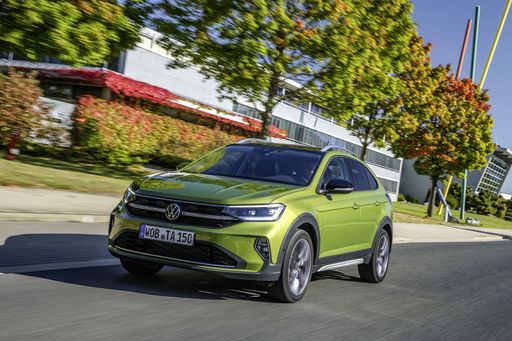
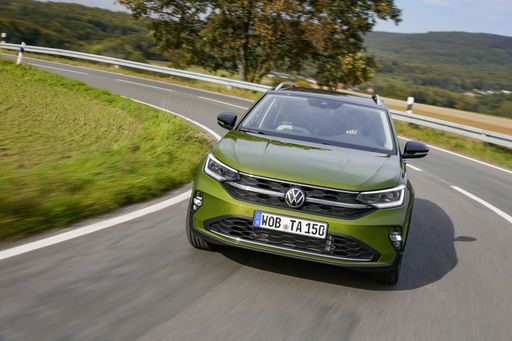


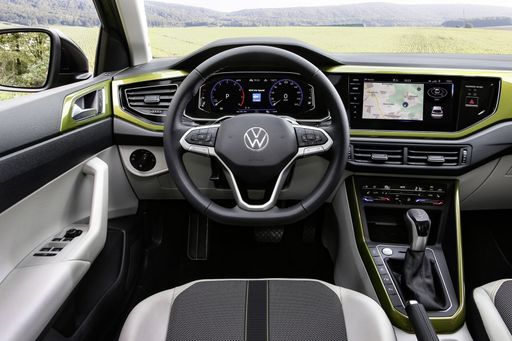

|

|
|
|
|
Costs and Consumption |
|
|---|---|
|
Price
29200 - 42600 £
|
Price
19600 - 31300 £
|
|
Consumption L/100km
2.3 - 5 L
|
Consumption L/100km
5.3 - 5.8 L
|
|
Consumption kWh/100km
15.60 kWh
|
Consumption kWh/100km
-
|
|
Electric Range
78 - 450 km
|
Electric Range
-
|
|
Battery Capacity
0.40 kWh
|
Battery Capacity
-
|
|
co2
0 - 129 g/km
|
co2
120 - 132 g/km
|
|
Fuel tank capacity
42 - 52 L
|
Fuel tank capacity
40 L
|
Dimensions and Body |
|
|---|---|
|
Body Type
Hatchback
|
Body Type
SUV
|
|
Seats
5
|
Seats
5
|
|
Doors
5
|
Doors
5
|
|
Curb weight
1453 - 1749 kg
|
Curb weight
1229 - 1302 kg
|
|
Trunk capacity
314 - 412 L
|
Trunk capacity
440 L
|
|
Length
4367 mm
|
Length
4266 mm
|
|
Width
1852 mm
|
Width
1757 mm
|
|
Height
1438 mm
|
Height
1518 mm
|
|
Max trunk capacity
1258 - 1323 L
|
Max trunk capacity
1222 L
|
|
Payload
430 - 503 kg
|
Payload
448 - 457 kg
|
Engine and Performance |
|
|---|---|
|
Engine Type
Petrol MHEV, Diesel, Plugin Hybrid, Electric
|
Engine Type
Petrol
|
|
Transmission
Automatic
|
Transmission
Manuel, Automatic
|
|
Transmission Detail
Dual-Clutch Automatic, Automatic Gearbox, Reduction Gearbox
|
Transmission Detail
Manual Gearbox, Dual-Clutch Automatic
|
|
Drive Type
Front-Wheel Drive
|
Drive Type
Front-Wheel Drive
|
|
Power HP
131 - 195 HP
|
Power HP
95 - 150 HP
|
|
Acceleration 0-100km/h
7.6 - 10.6 s
|
Acceleration 0-100km/h
8.2 - 11.1 s
|
|
Max Speed
170 - 225 km/h
|
Max Speed
184 - 212 km/h
|
|
Torque
230 - 300 Nm
|
Torque
175 - 250 Nm
|
|
Number of Cylinders
3 - 4
|
Number of Cylinders
3 - 4
|
|
Power kW
96 - 144 kW
|
Power kW
70 - 110 kW
|
|
Engine capacity
1199 - 1598 cm3
|
Engine capacity
999 - 1498 cm3
|
General |
|
|---|---|
|
Model Year
2025
|
Model Year
2024 - 2025
|
|
CO2 Efficiency Class
C, D, B, A
|
CO2 Efficiency Class
D
|
|
Brand
Peugeot
|
Brand
VW
|
Is the Peugeot 308 offered with different drivetrains?
Available configurations include Front-Wheel Drive.
The prices and data displayed are estimates based on German list prices and may vary by country. This information is not legally binding.
